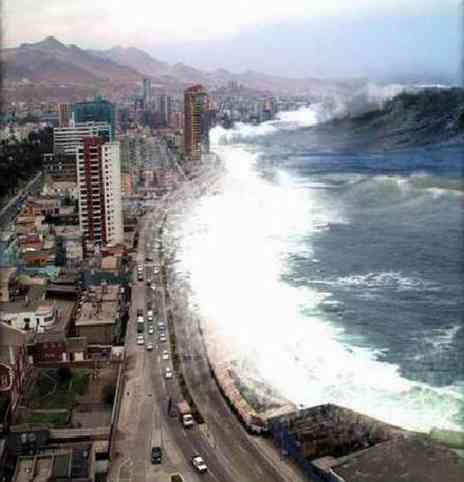
The fallout of global warming: 1,000 years
In stark terms, scientists confirm that climate change is 'unequivocal'
MARTIN MITTELSTAEDT
ENVIRONMENT REPORTER
Humans have already caused so much damage to the atmosphere that the effects of global warming will last for more than 1,000 years, according to a summary of a climate-change report being prepared by the world's leading scientists.
The draft, seen by The Globe and Mail yesterday, also says evidence the world is heating up is now so strong it is "unequivocal" and predicts more frequent heat waves, droughts and rain storms, as well as more violent typhoons and hurricanes. It concludes the higher temperatures observed during the past 50 years are so dramatically different from anything in the climate record that the last half-century period was likely the hottest in at least the past 1,300 years.
Moreover, 11 of the past 12 years rank among the warmest since humans began taking accurate temperature measurements in the 1850s, a record of extremes so pronounced it is unlikely to be due to chance.
"Warming of the climate system is unequivocal, as is now evident from increases in global average air and ocean temperatures, melting of snow and ice, and rising sea level," says the draft, which is being reviewed in
The draft also makes projections of how the climate is likely to change over this century:
Sea ice will shrink in both the Arctic and Antarctic, and late summer sea ice in the
Heat waves and storms involving heavy precipitation will continue to become more common, as will droughts;
The number of hurricanes will decrease, but the ones that do occur will be more powerful;
Ocean currents responsible for such things as the
Global temperatures in 2090-99 are likely to be 1.7 degrees to 4 degrees warmer than the period from 1980-1999;
Current models suggest global warming of 1.9 to 4.6 degrees would lead to a "virtually complete" elimination of the
Sea levels will probably rise from between 0.28 metres and 0.43 metres, although there is a chance the increase will be larger if
The IPCC report is the fourth to be issued by the UN-organized group of scientists, and draws on contributions of about 2,000 top experts from around the world, including many from
The panel's findings have evolved since the first was issued in 1990, becoming more confident over time that human activity -- mainly the burning of fossil fuels, deforestation, and large-scale agriculture -- have been causing profound changes on the climate.
The first report suggested global warming might be happening. The second, in 1995, said it was likely to be under way, while the third, in 2001, had a tone that indicated scientists were pretty sure they were seeing humanity's fingerprints on changes in climate.
Given the stark tenor of the draft scientists are now considering, they seem absolutely sure that climate change is happening.
The projection that human influence on the atmosphere during the 21st century will contribute to warming for more than 1,000 years is based on estimates for how long it will take nature to remove global-warming gases from the air.
The draft says evidence of warming is now being found almost everywhere in the world, from the tops of mountains, where glaciers are in retreat, to ocean deeps, where the average water temperatures have increased all the way down to depths of 3,000 metres because of the warming effect of a hotter atmosphere.
Some environmentalists are predicting that a strongly worded IPCC report will dispel any lingering doubts that global warming is really happening, and are calling on politicians to start taking more sweeping action to limit emissions of the greenhouse gases blamed for climate change.
"There is no more reason to delay," said John Bennett, spokesman for the Climate Action Network
The United Nations' top environment official is calling for an emergency climate-change summit later this year.
The IPCC report will be issued in four instalments over the course of the year. The first section, now being prepared, deals with all new scientific evidence assembled since 2001 on how the world's climate has been changing. The others will deal with specific topics, such as how humans can adapt to climate change and mitigate its effects.
The draft says concentrations of two main greenhouse gases, carbon dioxide and methane, "far exceed" anything seen over the past 650,000 years, based on data that reconstructed the atmospheric composition of earlier times using air bubbles contained in ice cores.
The changes to the atmosphere are so large the scientists estimate that warming due to human-caused increases in greenhouse gases are at least five times larger than natural changes caused by normal alterations in output of solar energy from the sun.
Although the draft doesn't mention

No comments:
Post a Comment